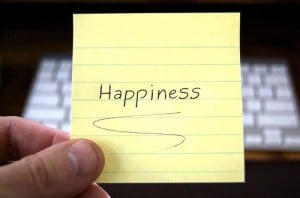
Happiness by sciondriver
What is the key the happiness?
Wouldn’t most people pay millions for the answer to that question?
Quite a while ago I found this short story about the key happiness ( in the Buddhist Path to Simplicity by Christina Feldman).
A zen master was once asked “what is the key the happiness?” He answered “good judgement”, “How do I gain good judgement?” he was questioned, “experience” was the reply.
“How then do I get experience?” the student further probed, “Bad judgement” were his final words.
As happy as the next person
I like to be as happy as the next person, but this story has been running around in my head for a while and it quite often pops up again when I am thinking about what I am doing and why.
Like most of us I’ve really excerised my “bad judgement” muscle and have definitely developed quite a portfolio of “experience”, and spent time wandering about some of this experience and what it means.
Which camp do you build with your experience?
When doing this we have a choice and people tend to broken into two camps. Those who look at their experiences and dwell on them worrying about what could have been, or what they think should have been and then expending a lot of unneccessary energy on regret or reliving the experience in a negative fasion.
The other camp is those who reflect on the experience, realise that nothing you can do is going to change the circumstances that led to the experience, nothing is going to change the actual experience but the experience contains a wealth of information that can help you make things different in the future.
I think the first camp is going to continue to experience “bad judgement” and sell themselves short on finding the key to happiness because they continue to cling to the past and what was, whilst the second camp by focusing on the the lessons learned and the future, focusing on what is, and what could be, are exercising their “good judgement” muscle and working hard on using the key to happiness.
Working out your happiness muscle
Like all muscles if we excercise them they get stronger, and more resilient over time. If we don’t excercise them they atrophy and lose mass, becoming less effective.
I try spend a good deal of my time working to exercise the “good judgement” muscle in order to experience more happiness.
What about you? what are/were the experiences that taught you good judgement, and which “muslce group” are you building up every day? and what are your tips for learning “good judgement”?
Let’s talk about it.